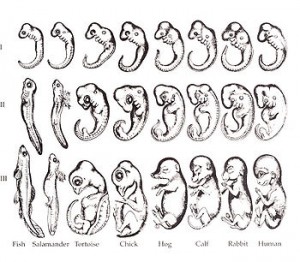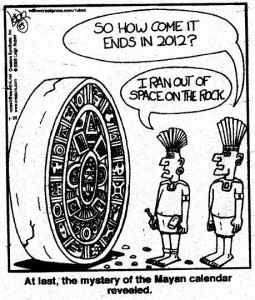I Choose Not to be a Racist
I do not think that automatic responses (as we discussed in class on Friday) are an indicator that all our behavior is predetermined. I understand that we have automatic processes. I think that these exist in order to help us sort through the massive amounts of data and stimuli that enter our senses and minds every day. We need these automatic responses in order to sort and respond to information quickly—sometimes these responses are even used to help us in life and death situations when it is imperative that we act without much thinking. That being said, I believe that we have the capacity as humans to choose not to accept or act upon these automatic responses. If we know that we are responding due to an automatic thought process, we can make a different choice.
I found the studies that Dr. McAnulty presented to us on Friday to be interesting. I would like to proffer another example of an automatic response test. When I was in my social psychology class, we took an implicit association test. This test is supposed to measure whether a person prefers one race (white or black) to another race. In this test, the participant has to perform four tasks. The first task is to identify European American faces or African American faces as quickly as possible. Secondly, the participant is asked to identify “good” or “bad” words (such as “glorious,” “awful,” etc.). Next the participant is shown faces and words; “bad” words and African American faces are identified with the same key stroke and “good” words and European American faces are identified with the same key stroke. Finally, the previous step is reversed.
Every time I have taken this test, I have scored “strongly prefers European Americans.” If I believed that only automatic or implicit associations informed my actions, I would be very upset. Instead, I know that I form opinions about people based upon the people individually. I like African American people and I like white people. I also dislike some white people and some African American people (although I can think of more white people I dislike than African American people.
If you would like to try out the implicit association test (and I would strongly recommend taking a few minutes to try it out) the link follows. It only takes a few short minutes and the results are interesting.
https://implicit.harvard.edu/implicit/Study?tid=-1
PS: one of the flaws I find with the test is the order in which things are presented. First you are asked to associate African Americans with negative words, then, when you are used to that set of information, you are asked to change and associate African Americans with positive words. I think that the order may influence the test results–but that is just my opinion.












Amy McCarty on School's out for summer...
7:49 am, 11.22.10
I think you have an interesting list of movies there. I saw a sleeper movie this weekend about institutionalization this weekend called Session 9 which was interesting. I think that we have to be careful, though to not let Hollywood inform our complete picture of institutionalization. There were atrocities perpetrated on people for sure. Also a few documentaries of early institutions exist which are very bleak.
Amy McCarty on Critique on Humanistic Psychology
10:25 pm, 11.21.10
I too have some major concerns about humanistic psychology. For instance, I am not sure that everyone has the capacity within themselves to change. I am not sure that a person with anti-social personality disorder has that capacity. Additionally, unconditional positive regard (as it was explained in my counseling class) is accepting a person as he/she is (not necessarily approving of their actions). Sometimes, though I think that unconditional positive regard can be interpreted by clients as implicit approval.
Amy McCarty on Self-Actualization and Potential
10:17 pm, 11.21.10
I think that we never reach our full potential because we will never meet perfection. I agree that we should all strive to be better versions of ourselves every day, but as Christians and people, we should remember that we have “all sinned and fallen short of the glory of God.”
Amy McCarty on Watson & Child Studies/Child Rearing
10:46 am, 10.25.10
I agree with you that Watson does not seem to be a warm, loving father. I find it fascinating that he spent so much time in marketing and was so successful there (where you do not have to show emotions or deal with people as individuals).
Amy McCarty on "Brilliant Deduction Watson"
10:43 am, 10.25.10
Courtney – I agree that ethics can sometimes be limiting to research, but I also feel that it is important to have and ethical code. Sometimes I think that this code is too constraining. I remember hearing that there were huge ethical concerns with Stanley Miligram’s experiment. I do not understand the concerns there – the situation was not real. However, without an ethical code, we might spiral back to the experiments conducted during the Holocaust. Also, Watson cheated with his research assistant, not his secretary.
Amy McCarty on Watson and the Devil
10:37 am, 10.25.10
I have been struck all semester by two observations. The first closely matches your observation – that a lot of psychologists were deeply influenced by their childhoods which in turn influenced their work. Another observation is that many philosophers and early psychologists seemed to suffer from some sort of mental illness (including depression) themselves.
Amy McCarty on Reinforcement and social learning
12:56 pm, 10.11.10
I agree that there is a difference between intrinsic and extrinsic rewards. I also agree that social learning is intrinsically reinforced.
Amy McCarty on The Human Machine?
12:35 pm, 10.11.10
I do not have well formulated, concrete ideas on this subject, but I think that there is more to humanity than the ability to think. I believe that we are complex creations enhanced by our emotions. I also think that many pursuits (Artificial intelligence, cloning, artificial insemination, etc.) could be our modern day tower of babel.
Amy McCarty on Faith Based on Feelings
11:32 am, 10.11.10
Mary, I appreciated your post and hope that your faith foundation is strong. I remember leaving our class discussion last Wednesday very excited and fired up. To me it is very encouraging that there is an area of the brain that is active when we are “feeling it” (religion). It is proof of a creator, in my opinion. If God created us, if we are fearfully and wonderfully made, why would he not put a receptor (for lack of a better term), in our brains?
Amy McCarty on Choice
7:50 pm, 10.04.10
Thank you for sharing the TED video on choice. I think that our influences are a mixed bag. I definitely think that environment plays a role in our development as does biology (and I believe our biology is influenced by environmental factors). I also find the difference in individualistic vs. collectivistic cultures fascinating. I found it interesting that the researchers in your video measured productivity as opposed to stress, time taken to make a choice or other factors.